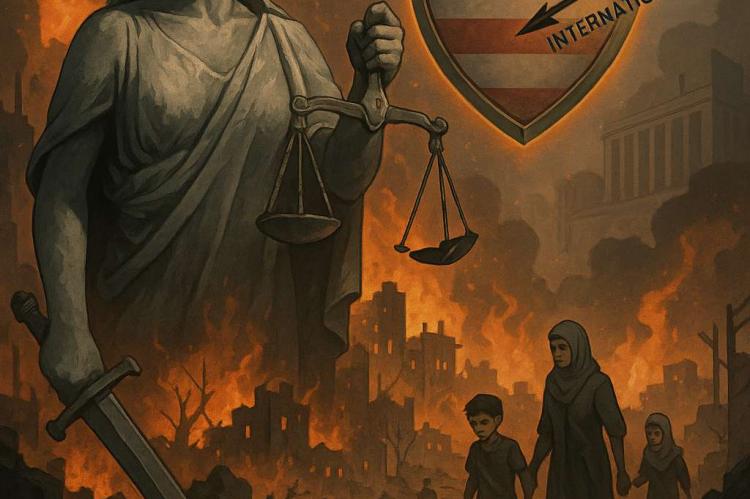🇺🇳 The Hypocrisy of Power: How the U.S. Shields Israel from Accountability at the ICJ While Undermining Global Law
By: Omar Silva I Editor/Publisher
National Perspective Belize – Digital 2025
Belize City: Wednesday 30th April 2025
While the world bears witness to the unspeakable suffering of Palestinians in Gaza, the United States has once again taken the global stage—not as a mediator of peace, but as a shield for impunity. In defending Israel at the International Court of Justice (ICJ), the U.S. has not only challenged the legitimacy of the UN Relief and Works Agency (UNRWA), but has effectively placed itself and its closest ally above international law.
📌 1. The Illusion of Legal Integrity: Selective Application of International Law
The U.S. legal adviser, Josh Simmons, argued that Israel is not legally required to cooperate with a UN agency if it deems it a threat to its “security interests.” This logic undermines the core principle of impartial humanitarian assistance in international humanitarian law, particularly the Fourth Geneva Convention, which binds occupying powers to ensure access to food, water, and medical supplies without obstruction. Denying UNRWA’s operation, under unverified claims, appears less like a legal argument and more like a pretext for collective punishment—a war crime under the Rome Statute of the International Criminal Court.
Meanwhile, Russia, South Africa, and many other nations have stood firmly on the side of humanitarian principles, asserting that no alleged security threat can justify the blocking of lifesaving aid to a civilian population that is now on the verge of famine.
📌 2. U.S. Exceptionalism: Only Accountable When Convenient
The U.S. has a long track record of undermining international institutions when rulings or resolutions don’t align with its foreign policy agenda. From pulling out of the UN Human Rights Council, to refusing to ratify the Rome Statute of the ICC, to now delegitimizing UNRWA, Washington has repeatedly shown that it views global institutions as tools to be used selectively—not as equalizers of justice.
Yet when it comes to justifying sanctions, wars, or interventions elsewhere—be it in Iraq, Venezuela, Iran, or North Korea—the U.S. is quick to cite the UN Charter and international law.
This blatant instrumentalization of global institutions is not just hypocritical; it is corrosive to the very framework of international order the U.S. claims to defend.
📌 3. Why Defend Israel So Aggressively? A Web of Strategic and Ideological Interests
Washington’s unwavering support for Israel stems from a combination of:
Geostrategic value: Israel is a U.S. military and intelligence outpost in the Middle East.
Political influence: The Israel lobby (AIPAC and others) wields immense power in U.S. Congress.
Ideological alignment: Both nations view their missions as exceptionalist and divinely ordained—Israel as a Jewish homeland, the U.S. as the beacon of "freedom."
But no alliance, no historical narrative, and no political interest should justify the slaughter of tens of thousands, the starvation of children, or the deliberate flattening of entire cities.
📌 4. Global Implications: Eroding Trust in the UN and ICJ
When powerful nations like the U.S. and Israel dismiss the authority of the ICJ or obstruct UN agencies, they send a clear message: international law is for the weak. This sets a dangerous precedent, giving other authoritarian regimes a blueprint for ignoring human rights norms under the guise of "security threats."
Moreover, it weakens the UN system at a time when humanity needs multilateralism more than ever—whether to address climate change, war crimes, or displacement crises.
✊ Conclusion: The World is Watching
If the U.S. and Israel continue to act as if they are the law, not bound by it, then the very foundations of global justice are at risk. The International Court of Justice must stand firm, even in the face of pressure from the world’s largest superpower.
Let it be clear: the principles of justice are not negotiable, and the world’s silence—or complicity—today will echo in the generations of Palestinians and all oppressed people who wonder why their lives are deemed expendable by those who claim to defend freedom.
- Log in to post comments

